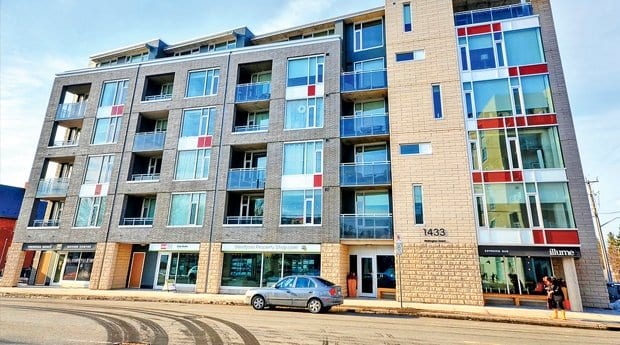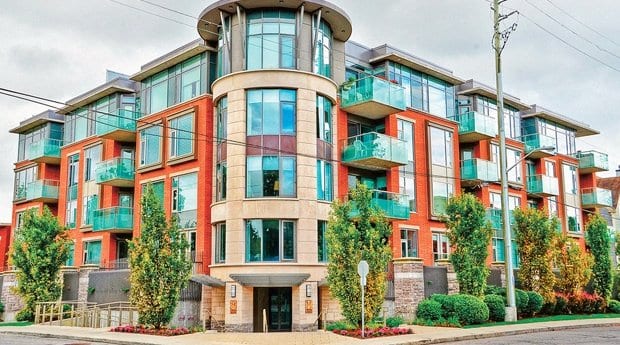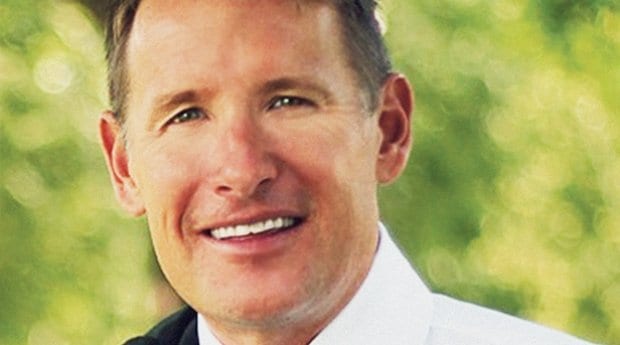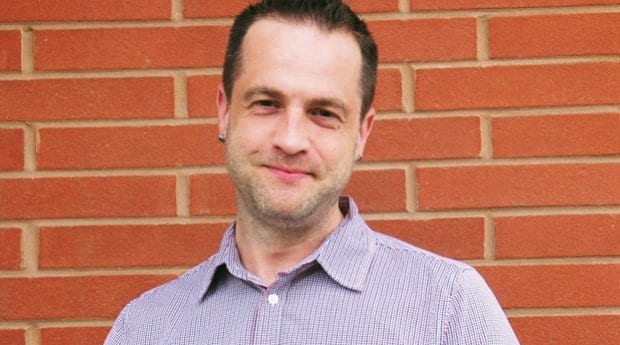
Located in the Wellington Village, The Wellington is above a coffee shop, next to a 24-hour grocery store, and has a gym and party room. Credit: Adrienne Ascah

The New Edinburgh condo building has the floor-to-ceiling windows popular with so many downtown dwellers. Credit: Adrienne Ascah

John King is a realtor and broker. Credit: Adrienne Ascah
It’s a buyer’s market, and for many LGBT homebuyers, a downtown Ottawa condo is the place to be.
Having someone else do the snow clearing and yard work while living close to cafés, bars, restaurants and shops resonates with many busy professionals. Xtra talked to gay realtors Paul McAllister, from Century 21, and Royal Lepage’s John King about the capital’s hot condo market.
Copious condos
“I’ve been licensed for 20 years, so I’ve seen different stages of central Ottawa real estate in the condo market over the years, but what we’re finding right now is that there’s overabundance and oversupply of condos in the market,” says King, who was just ranked 79th out of Canada’s 15,000 Royal Lepage agents. “It’s a very good time to buy because there’s a lot to choose from.”
That’s great news for buyers, but sellers should be patient. Condos are still in demand, but with so many on the market, they’re not selling as quickly as they used to.
Slower sales
“If you were selling a condo in the first quarter of 2013, on average it would take 49 days,” says King, referring to statistics from the real estate board. “For the first quarter of January 2014, a year later, the days on the market have jumped to 77.”
Ottawa’s economy has long depended on the public sector’s steadying influence, but government job cuts have affected not only the local economy, but the housing market, McAllister says.
“Condo developers are quickly filling the [downtown] core with towers, but from what I see, selling them isn’t an easy feat,” he says. “With the recent and future federal government job cuts and budget freezes, it seems to have slowed the overall housing market in Ottawa. Ottawa is heavily impacted and at the mercy of the government on their actions, in my view.”
The combination of government cuts and an oversupply of condos has left some sellers with disappointing returns.
“I think in a lot of cases, we’re looking at around 2008, 2009 prices,” King says. “Anybody who’s bought at that time or after is probably looking at a loss.”
Flip, don’t flop
There’s money to be made in reselling downtown Ottawa condos, but not if you’re in a rush, McAllister says. If you can hold on to the property for five years, that’s reasonable, but trying to execute a two-year flip will flop.
“The way the condo market is going right now, I don’t recommend clients looking at something as an investment if they’re looking at selling within two or three years,” McAllister says. “I just don’t think the market’s going to turn around enough that you’ll make a worthwhile profit, because by the time you pay all the legal fees, the real estate fees, the taxes, the land transfer tax, et cetera, you’re probably not going to really make any money.”
Gaybourhood
Ottawa has a gay village, but even the most gullible knows not every gay Ottawan lives there. Still, McAllister and King agree that many queer people live in the downtown core because they appreciate all the amenities.
“There’s no buildings that would be known as sort of ‘gay’ buildings, but I would say that it would tend to go more to the geographic area — Centretown, Lowertown, perhaps Sandy Hill,” King says. “Central Ottawa, of course: the core is where we’re going to find most of us.”
Style over size
“I have to say, in my 20 years, that gay people tend to have a really good intuition on knowing where to buy in real estate,” King says. “I think us gays just tend to have that style gene, as I call it.”
There’s no denying condos have gotten smaller over the past 20 years, but the open-concept design makes condos feel bigger, and many queer couples choose style over size, he says. A downtown condo won’t be as big as a house in the ’burbs, but McAllister agrees that’s just fine with many queer singles and couples.
“I find that LGBT buyers would be okay with a little smaller place as long as the night life and restaurants, et cetera, are nearby,” he says. “LGBT owners can stay in that condo for longer even if they couple up, whereas a straight couple may need to move to a large place if they decide to have a child and eventually will need more space.”
Some queer couples are settling down and having kids, but same-sex couples are unlikely to experience an unplanned pregnancy, so having kids is often a planned, longer-term process, McAllister says.
Planning is your friend when it comes to real estate. If you buy a condo and later want to upgrade to a larger condo or a house, you want to be able to wait until it’s financially advantageous to do so, he points out.
Adding & subtracting amenities
Everyone agrees that proximity to restaurants, bars, clubs and shops — not to mention gyms, grocery stores and banks — is a good thing. But when it comes to in-building amenities like a pool, fitness centre, concierge service and 24-hour security, realtors say it’s a question of preference.
“Someone that’s very physically active and is big on the gym thing, they tend to already have a gym membership, and a lot of the gyms within the condo corporations are not always that elaborate, with a minimum number of machines,” McAllister says.
If you’re watching your budget, paying for extras you rarely use isn’t logical, he says, adding that you can always cancel your gym membership, but you pay for your condo building’s amenities whether you use them or not.
For other busy professionals, in-house amenities make life easier. “I would have no problem paying a higher condo fee to have all in-house amenities — a gym, a pool and a full concierge service,” King says. “I’ll pay the price because that’s what I need for my busy lifestyle.”


 Why you can trust Xtra
Why you can trust Xtra


